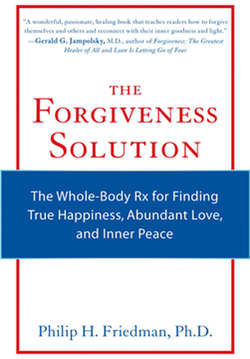Читать книгу The Forgiveness Solution - Philip H. Friedman - Страница 25
На сайте Литреса книга снята с продажи.
The Gratitude Questionnaire (GQ6)
ОглавлениеThis scale was developed by Michael McCullough and Robert Emmons and their colleagues. Again, it is widely used by researchers in the field of subjective well-being, happiness, and positive psychology. I recommend retaking it weekly or at least every four or five weeks. My clients retake it every five weeks.
Using the scale below as a guide for questions 1 through 4, write a number beside each statement to indicate how much you agree with it.
_____ 1. I have so much in life to be thankful for.
_____ 2. If I had to list everything in life I had to be grateful for, it would be a very long list.
_____ 3. I am grateful for a wide variety of people.
_____ 4. As I get older, I find myself more able to appreciate the people, events, and situations that have been part of my life history.
Using the scale below as a guide for questions 5 and 6, write a number beside each statement to indicate how much you agree with it.
_____ 5. When I look at the world, I don't see much to be grateful for.
_____ 6. Long amounts of time go by before I feel grateful to something or someone.
Add up your scores for questions 1 through 6 to get your
Gratitude Questionnaire (GQ6) Total Score_____(this number should be between 6 and 42).
An average score for the GQ6 Scale is 37. A low score is 29 to 30. A very low score is below 29. A high score is 40 to 41. A very high score is 42. The higher the number, the more grateful you are. The lower the number, the less grateful you are.
Copyright 2002 by the American Psychological Association. McCullough, M. E., R. A. Emmons, and J. Tsang. “The Grateful Disposition: A Conceptual and Empirical Topography,” Journal of Personality and Social Psychology 82, no. 1 (2002): 112–127. Adapted with permission.
